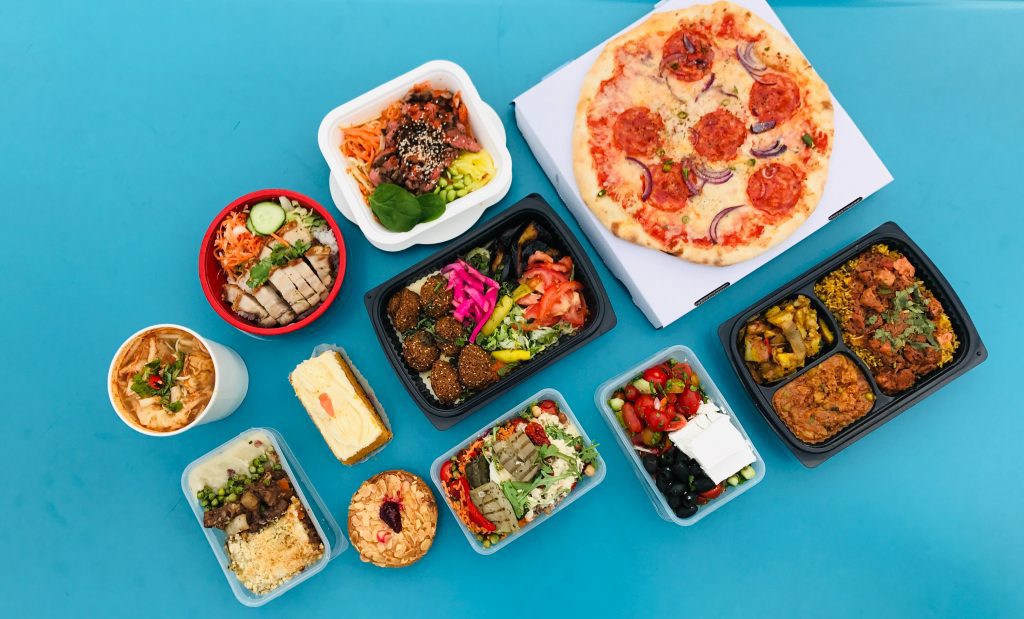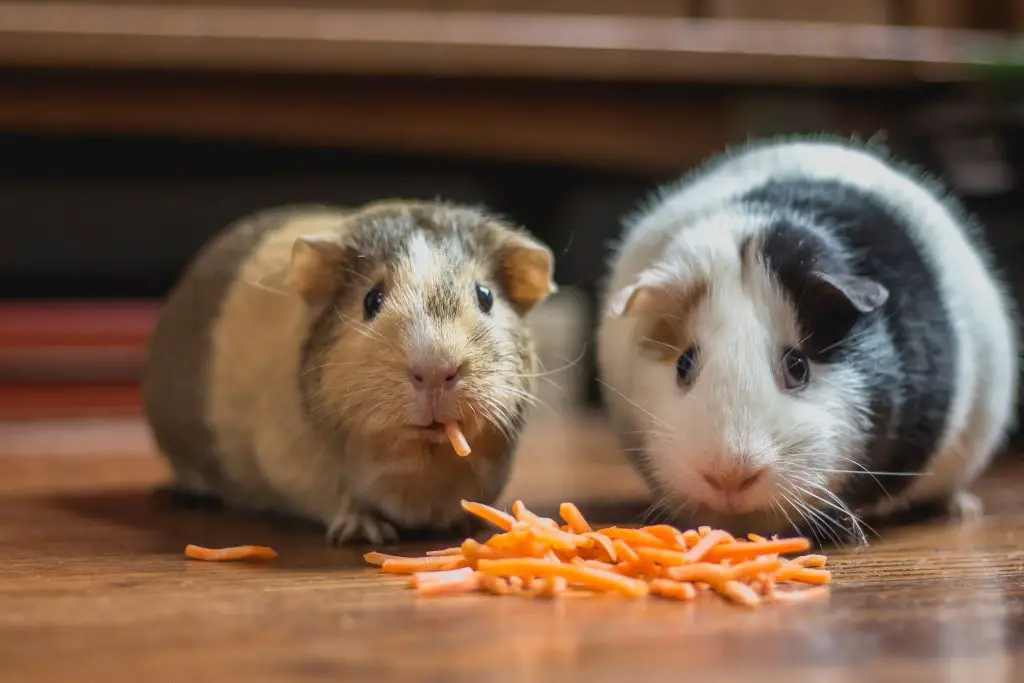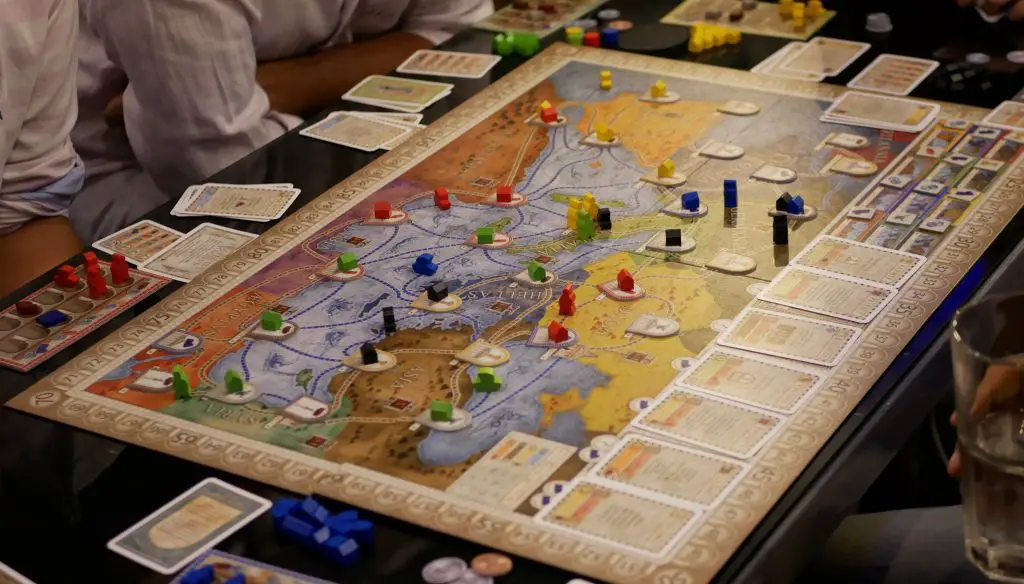This list of 201 parenting tips is guaranteed to make you a better parent.
We have 3 kids. We’ve been through a lot ourselves but I know this isn’t everything!
So give these parenting tips a read and when you get to the end let me know what I missed!
Parent Improvement Tips
- Take breaks: Everybody gets overwhelmed sometimes. Whether it’s stress, anxiety, or frustration it’s absolutely okay to walk away, get some space, and calm yourself down.
- Trust yourself: Your first instinct is probably a good one. You know more about raising your kids than you think you do. You’re doing great! Adriel Booker has a great post about learning to trust herself as a mom after reading parenting books. “You already have what it takes to be the best mom to your littles…” she says, “if only you give yourself the chance.”
- Show affection: Your kids will bond with you in a stronger way when you show some affection. Make them feel loved and they’ll do the same back.
- Don’t dwell on the guilt: Everybody makes mistakes in parenting. We all have errors in judgment and do things we regret. Do your best the next time and don’t dwell on it.
- Build a support system: This time I’m talking about you. Have a support system in place because raising kids is hard work. It’s stressful at times and having people there for you is a huge stress reliever.
- Make time to laugh: All parents are busy but make sure you make time to have some fun. Get a babysitter, have the grandparents watch the kids, and get out and have some fun sometimes. Put time aside for a planned family event. Fun Loving Families has a list of 35 family fun activities here.
- Not everything has to be fixed: Sometimes your kids just want an ear to listen. You don’t have to fix everything every time your kids are upset. Read the situation and sometimes they just want you to be there. Imperfect Families has a great example of this and how to go about doing it in their post here.
- Be your child’s support system: Make sure your kids know you’re there for them through anything. Being a kid is hard and kids today are under a ton of pressure. Having you there for support is very reassuring.
- Say yes: As parents, there are lots of things we have to say no to. The times what they are asking is okay or is possible make an effort to say yes more often. Your kids will appreciate it.
- Make each kid feel special: If you have multiple kids, take the time to make each individual feel special. Send a kid on a one-on-one with each parent sometimes. Have both parents take one kid out here and there for a special activity. They’ll love the one-on-one attention.
- Be affectionate: If you’re raising your kids with a significant other, make sure you are affectionate in front of them. This goes a long way to being an example of how to treat others and see relationships in a positive manner.
- Respect parental differences: If you’re parenting with a significant other or co-parenting your kids, you’ll need to respect that each parent – even in a relationship – will have different feelings and strategies on parenting. And that’s absolutely okay.
- Be specific with praise: Specifically, praise individual actions to make your praise clear to your kids. Being more descriptive with your praise makes it come off more sincere and heartfelt.
- Don’t talk down to your kids: Talking down to your kids – especially in front of others – makes your kids feel small and have resentment. There is nothing to be gained from downplaying their achievements or making fun of their interests.
- Believe in them: Don’t underestimate your kids. Kids can achieve more than you think. Help them to reach their full potential. Bonnie Harris has an interesting story about her daughter playing the violin on her blog.
- Ask about their day: Take a real interest in your kid’s day. Make them know you care. Talking more can also help you identify challenges they may be having in life.
- Be the superhero they think you are: Every parent has their own challenges and shortcomings. But remember you are everything to your kids and they believe their parents are superheroes. Do everything you can to be that superhero.

For the parents to be we have two great articles for you to check out. We have a stroller buying guide and the math behind how much diapers cost in Canada.
- It’s okay if they’re mad at you: You’re their parent and sometimes you need to make decisions your kids aren’t fond of. That’s okay, they can be mad sometimes as long as deep down they know you’re always there for them.
- Say I love You: Your kids should never have any doubt about your feelings toward them and your spouse.
- Put the phone away: I’m guilty of it too. Parents likely reading this grew up with phones and it’s natural. But it’s much better to do your best to put the phone away and be present in their lives more often.
- Be present for your kid’s moments: There is something special about watching your kids at an activity and seeing them proudly do something that even surprised them. Typically the first reaction is to look up at the parents to make sure they saw too. Don’t miss these moments.
- Don’t worry about others: Don’t worry about how your parenting looks to others. Do the best for your kids always and if people judged you for it, do you really care about them anyways? Not to mention if you’re dealing with a screaming toddler, all the other parents have been there too.
- Social media is a highlight reel: Remember that those Facebook photos of other families are just a highlight reel of their lives. What you didn’t see was the tantrum two minutes before, the peed pants that afternoon, and the massive fight between siblings that night. People only post what they want you to see. Kim from Butterfly Beginnings Counselling posts about this very thing here. “Put moments above pictures” is one of her tips and that couldn’t be more true. Please give the rest of the post a read as it’s great advice.
- Most parenting advice is sunny day parenting: We all know screen time is bad for your kids. We all know instinctively to do a lot of things on this very list. But be realistic, most parenting advice is for when things are going well and if you’re in a jam, absolutely give them an iPad for a few minutes. Everything is going to be alright.
- We all have bad days: Remember everybody has bad days. The key is to do your best to not chain them together. But don’t dwell on the moment. It happens to everybody.
- Learn silent support: Your kid’s moments are their moments. Don’t steal them by being an obnoxious parent. Thumbs up work great for positive acknowledgement without stealing the moment away from your kids.
- Careful with post-game comments: This applies to anything, not just sports. Keep in mind after a performance or a game that your kids are exhausted. Even comments meant in a positive way can be taken negatively. Be supportive and if they want to talk, they’ll talk themselves.
- Respect space: Everybody needs space. Just like it’s perfectly acceptable when you need some time alone, it is for your kids too. Everybody needs a minute sometimes.
- Don’t invade privacy: Diaries are their space. Observation of appropriate technology is a must but do this with parental controls and discussions. Invading their privacy leads to trust issues and resentment. It’s not worth it.
- Guide, don’t force: Help guide your kids towards making good decisions in life. Don’t force it. Forcing decisions you believe to be right usually doesn’t work anyway.
- Remember different values: Your kids may have different values or place different values on parts of life than you. Remember that’s okay. Your kids don’t need to follow in every footstep – let them make their own trail.
- Positivity first: Not everything needs to be perfected or criticized.
- Reward effort: Effort is more important than the result. If your kids are putting in the effort that’s all anybody can ask for. Reward that effort and not the end result.
- Remember kids progress at different rates: All kids will hit milestones at different times. It’s not a race and don’t feel stressed if your child appears to ‘be behind.’
- Stop talking about others: Your kids will pick up on this. Don’t talk about others in general but especially around your kids. It will come up at the worst time.
- Stop judging others: If you’re judging other people when you’re out – your kids will pick up on it. This can lead to anxiety, self-confidence issues, and incorrect perspectives on life.
- Be a team: Your spouse and you are a team. Remember this at all times and have a plan going into difficult situations or how you’re dealing with situations throughout your child’s life. The blog Baby-Chick has an article giving tips on how to parent as a team. My favourite is to create a protocol of how you will handle disagreements. It goes a long way to being on the same page and not having resentment toward your partner.

Feeding Time Tips for Parents
- Regular Meals: Eating three times a day. We’ll cover this a few times but routines are a big part of kids’ lives and help provide structure and comfort to their lives.
- Meal Planning: Saves money and allows you to eat healthier. By meal planning your grocery store trips and dinner time become more streamlined without having to think up a new dinner on the spot each night. The Penny Hoarder has a great post on how to start meal planning.
- Go with your meal planned list to the store: Your meal planning should let you overlap ingredients to make the most of your budget. Sticking to the list is a great way to save money without buying ingredients that go bad constantly or ending up with food you really shouldn’t have bought anyway.
- Breastfeeding: Breastfeeding has great benefits for your baby. But no shame here, there are of course reasons this isn’t possible for everybody though which leads me to…
- It’s your decision when to stop breastfeeding: There are lots of experts out there when you decide to stop breastfeeding. Don’t let them bother you. Your decision is your decision and as my wife and I personally know there are several reasons this could not be possible anymore.
- Get the kids helping make meals: Getting them involved early makes food more of a fun topic, plus from my experience, it can make them more likely to try new foods when they’ve helped make them themselves. It’s also an incredibly rewarding experience for all ages to see their hard work become delicious food. I’m not the only one who gives out this advice. The Fresh Mommy Blog has you covered with tips to cook with children on her blog.
- Start them on healthy food: It’s very very easy to just say yes instead of putting up with another argument on snacks and junk food. Don’t let this snowball in the first place and it makes life a lot easier.
- Reduce the junk food available from the source: Instead of having to put up with the junk food tantrums, it can be easier to just not have it in the house in the first place. They can’t get it no matter how much of a tantrum it is if it isn’t in the house at all.
- Eat as a family: Dinner time can be a great bonding experience. No devices or toys at the table and you’ll end up with a great bonding time for everybody to spend a little time fully present in each other’s lives.
- Start them young: Have your babies branch out into a wide variety of pureed foods early on. Getting them experienced with a wide variety of foods can make things drastically easier as they get older.
- Make your own pureed baby food: You can make your own pureed baby food quite easily with a blender. We started with some pureed sweet potato after baking it in the oven. You can freeze them in portion-sized containers and it makes for cheap, easy baby food.
- Keep trying foods again and again….. and again: You never know when it clicks and you have to keep trying no matter how many times it ends up on the floor or with the dog. We also play up the “taste buds changing” a ton when they like a new food. Seems to help.
- Kids will stop eating when full, don’t force them: Kids will eat when they’re hungry. They won’t starve. No matter how much grandma tortured you with cleaning the whole plate, this isn’t necessary for today’s day and age. They’ll eat as much as they need to. Don’t force them to overeat.
- Keep an eye on what juice is healthy: Not all juice is created equal. Keep an eye on what juice is actually healthy and what is just making appearances.
- Vitamin water is not the same as water: They’ve done great at marketing I’ll give them that. But no, vitamin water is not an alternative to water.
- Dessert shouldn’t be a reward: Food shouldn’t be a reward for doing good things. This can lead to a subconscious reliance on food. Dessert – when you finish your dinner – is fine but don’t use it to reward good behaviour.
- Set a good eating example: Kids watch you and how you eat too. And believe me, they notice. If they notice you’re bad eating habits they will emulate them.
- Promote experimenting with new foods: Don’t ever hold them back, especially with your own dietary distastes. Promote them to try out new things. Some kids will love seeing how proud adults are when they try things, but not every other kid will eat.
- Make difficult foods fun: Let’s face it, most adults don’t even like vegetables all that much. Making it fun would get me to eat more that’s for sure so try it out for the kids too.
- Give them a choice: If you’ve got difficult eaters, try giving them a choice between two healthy options so at least they feel like they have some choice in the matter.
- No coffee or pop: I’ve seen this enough times recently that I felt like it deserved a place on the list.
- I cut you choose principle: In what I’m sure will be a 92% reduction in food-related fights between siblings, introduce the I cut and you choose principle when sharing foods.
We have an amazing calculator for parents to budget the cost of their new baby’s first year. Check our the budget calculator.

Disciplining Tips for Parents
- Act immediately: Kids don’t remember for long what they did and punishing them retroactively after they do something doesn’t have the same effect. No matter what you’re doing, try to act immediately to correct their behaviour.
- Leave spanking in the past: This isn’t the ’70s anymore and the argument that my parents did it and I turned out doesn’t hold any water. There are more effective ways of parenting than this. Just don’t do it.
- Stay strong in your demands: Once you set a rule or answer a question stick to your guns on it unless you are wrong. Enforce it and don’t give in no matter how much crying is involved. This will only make it worse for you the next time.
- Set clear rules and boundaries: Adults can’t understand direction most of the time, what makes it more likely your kids will? Be clear with your expectations and help them succeed.
- Don’t yell: Yelling doesn’t work. Don’t get me wrong, we’ve all done it at some point but it just doesn’t work and usually escalates the situation. Take a moment yourself and come back to the matter calmly.
- Give warnings before switching activities: Give a 5-minute warning before you’ll stop a fun activity. Leaving the park or ending a bike ride will go much smoother if they have a heads up on what to expect.
- Tame tantrums: Figure out the way your child responds the best. This will take some experimentation but some just need some time alone while others need to be talked down.
- Please and thank you: This makes a world of difference when you start seeing your kids with others. Polite kids get much more respect in many areas of life.
- Natural consequences: Many kids will self-punish themselves and learn from their mistakes without any additional parental punishment required. Often the natural consequences of a mistake will be more effective in teaching a lesson than a punishment.
- Be consistent: Be consistent when behaviour does require a punishment. If you’re inconsistent with the punishment you could be teaching your kids to hope this time is the one with the lesser punishment.
- Stop worrying about being embarrassed in public: If somebody wants to judge you for not giving into a tantrum in public do you care about that person anyway? Any parent out there seeing it isn’t judging you, they are feeling sympathy and wish they could help.
- Do chores together: Instead of using chores as a punishment or a form of discipline you can make this a fun family bonding time together and it gets the house cleaned a lot faster.
- Pick your battles: Not everything is worth a fight. Sometimes being able to let something go, or going back to natural consequences is the best approach so you don’t risk being tuned out.

Health and Safety Tips for Parents
- Learn basic life safety: Basic first aid and CPR can be life-saving. Better to have it in the toolbox and hope you never need it, than not have it at all.
- Helmets are mandatory: Nobody cares how you or your kids look with a helmet on. Protect your noggin and wear a helmet.
- Know your emergency numbers: I’m not just talking about 9-1-1. Poison control and non-emergency lines are good numbers to have on hand as well.
- Window safety locks: Be sure to place these on any windows. Both, a security and safety feature.
- Electrical safety plugs: There are empty socket holders available cheaply online and from your local hardware store. These are essential items to prevent kids from sticking things in the sockets.
- Cupboard locks: Cupboard locks are necessary for all cabinets with chemicals, cleaning supplies, knives and breakable dishes. You don’t want your toddler having access to these areas.
- Sleep on their back: To help prevent a chance of SIDS keep them on their back. And they don’t need big fluffy blankets or stuffed animals, they only pose a risk to your sleeping baby.
- Car seat as long as possible: Keep your kids in their car seat far longer than you think, especially rear-facing. The weight ranges on car seats are the minimum, keeping them in safer positions as long as possible is advised.
- Check for car seat recalls: Speaking of car seats, check up on recalls for the model you have. They have safety recalls from time to time.
- Check for recalls on your vehicle: That leads us to recalls on your car as well. Check for safety recalls routinely when you are in for oil changes.
- Always observe the bath: It can be tempting to get some clean-up done while your kids are in the bath. Kids however are at a high risk of drowning in even inches of water. Keep an eye on them in the tub.
- Quit smoking: Shouldn’t need an explanation. Kids don’t need exposure to secondhand smoke. Saves a lot of money as well.
- Immunize: The guy who originally came up with vaccines that cause autism was discredited and found to have financial incentives up to $43 million a year in connection with his “study”. Let’s leave this in the past. It really shouldn’t be a controversy.
- Watch the head: This is self-explanatory but keeps in mind to not leave your babies unattended on the bed or unstrapped to a changing table. That will be the day they learn to wiggle and roll.
- Keep health records: This is especially important for kids when trying to figure out what vaccines have been done, what tests have been run previously, and helping to figure out a future diagnosis.
- Keep them moving: Active kids are much less likely to run into health issues. Keep them active every day and you’ll have healthier kids.

- Use sunscreen: Especially important for kids and their sensitive skin. Even if it looks cloudy, get them some sunscreen on.
- Fevers: I’m not a medical expert so I’ll refer you to where they are. Keep an eye on your fevers and know your stuff here.
- Double-check your prescriptions: Be sure the dose and medication you are receiving for your children are correct. Mistakes happen, it’s human nature so double-check others’ work before giving something to your child.
- Watch for loose permanent teeth: Catching this early can help the teeth be potentially saved and have a much cheaper dental bill.
- Don’t overlook coughs: If a cough is persisting for a long time it could be time to look into asthma or other related issues. Trust your gut and if it doesn’t seem right, ask your doctor.
- Brush their teeth: Start brushing early and often and help prevent dental issues. Especially important when your baby starts eating solids.
- Limit the screen time: Ties in with keeping them moving above but too much screen time can have all sorts of negative effects on your kids.
- Kids get hurt, don’t panic: Kids are going to get hurt from time to time. No need for guilt or panic, it happens to everybody.
- Tie-back anchors: You can pick up tiebacks online or from any number of stores. Tie back your TV and large furniture to the wall to prevent any chance of it falling over on your little ones.
- Road safety: Start the habit early of looking both ways before they cross the street.
- Bright hats: Distinct hats and bright clothes can help your kids stand out at the park. Makes them much easier to keep a close eye on when playing at the playground.
- Review parental controls: All modern devices these days come with parental controls. If they are going to use technology, be sure to set these up.
- Get off the phone: If you’re driving, put the phone down. This is law in many places now but a blue tooth solution is cheap and affordable these days.
- Don’t leave kids in the car: Everybody should know about not leaving kids in a hot car. But don’t leave them in a running car either no matter how far away you are.
- Check your hot water tank temperature: Your hot water doesn’t need to be too hot and when kids get curious about the taps it’s better to limit their ability to burn themselves.
- Door knob covers for the bathroom: From a practical point of view of not wanting toys in the toilet to a safety point of view of having your kids around water unobserved. Door knob covers are a must for new parents.
- Keep blind cords out of reach: Blinds are an often overlooked safety item. You can buy tiebacks for these as well to keep them out of the way of children.
- Get a gate for the stairs: In particular, a walk-through gate in the middle we’ve found the easiest to use, retractable gates break easily but get a gate to keep your little ones from falling down the stairs and going up the stairs unattended.
- Protect sharp corners: Grab some protectors for the corners of the fireplace and table edges. This helps dramatically with falls.
- Tablecloths are bad: Kids love to grab things they can reach, especially when learning to stand. Tablecloths make a perfect target.
- Start swimming lessons early: Getting them in the water early on will help them get used to the water and be much more comfortable with it as they get older.
- Lifejackets are essential near the water: They are potentially life-saving and should be mandatory any time you’re around a pool or body of water. Keep them safe.
- Keep them strapped to the changing table: It’s easy to skip this step for a quick diaper change. Especially if they’ve never rolled before but take the extra second and strap them in.

Sleep Tips For Parents
- Encourage sleep: Well-rested kids are better for everybody. You’ll notice much happier kids the more you help get them to sleep.
- Routine naps: Everybody has their definition of this but getting your kids well-rested during the day is also incredibly important, and from our experience, it’s a lot more than you think! And from our experience with 3 kids, the more sleep they get during the day the better they sleep at night.
- Swaddle newborns: Many newborns will love to be swaddled. They even make swaddle sleep sacks now to make it even easier to get them all tucked in. Momlovesbest.com has a medically reviewed post complete with videos on how to properly swaddle a newborn.
- Soothe nighttime fears, during the day: Instead of addressing nighttime fears at bedtime, do it during the day. When your kids get tired they will be less receptive to your efforts.
- Monster spray: If your kids are afraid of monsters, bugs or aliens you can make them up a spray bottle of “monster spray” for them to keep them away when they get scared at night.
- Set regular bedtime: Kids excel in a routine. Help them with getting their bedtime routine down. Nurture and Thrive have an excellent post on how to make a proper bedtime routine – backed by science!
- Do it your way with crying: There are arguments you’ll find for letting kids self-soothe themselves to sleep, to set intervals to caring for them constantly.
- Set up the bedroom properly: Make sure you have a good temperature, low light and low noise to ensure the best possible sleep.
- Bed covers are a lifesaver: Even with diapers, you’ll see blowouts and diapers that shift. As they get older and pee the bed you’ll be very thankful the mattress is protected.
- Walk the kids back to bed: Usually, the most effective method to get your kids to stay in bed is to quietly walk them back without a big fuss and attention. Don’t give in to the attention and delayed bedtime they are hoping for.

Learning and Education Tips for Parents
- Encourage them to do it their way: Having your kids learn through problem-solving is a great way to encourage their creativity and push them forward. Don’t micromanage them too much.
- Keep them talking: Having your kids talk about their good times and struggles is a fantastic way to build trust and bonds.
- Read to them: Reading has all sorts of benefits for kids, plus it’s fun!
- Sing with them: Singing and dancing promote movement, get them excited and they’ll love seeing you enjoying the time with them.
- Research your preschool choice: Preschools are much less regulated regarding curriculum and support. Make sure you look into their facilities, educators and what they teach. Not all preschools are created equal.
- Deep dive into your daycare choice: Drop by your daycares at a random time, call references, and ask lots of questions during your visit. You’ll learn a lot just from that conversation alone.
- Be in contact with the teacher: Keep up with your child’s teacher. They will give you a good idea of how your child is progressing and what might need some help at home.
- Join parent-school groups: The more families put into school the more the kids get out of it. Being an active participant in the school will help your kid’s interest in school too.
- Teach history: Age appropriate of course but it’s probably earlier than you think. Teaching kids about the past is a great way to help their understanding of the world and see life in a healthier way.
- Teach the value of money: Knowing the value of money is an important lesson early in life. Having a healthy respect for the effort it takes to earn and that things in their life should be treated with respect is a great lesson for your kids to learn.
- Teach respect for others: The thing that many know but few verbalize to their kids should be more explicitly talked about. Make sure you know your kids should respect others regardless of their differences and how to resolve conflicts that arise.
- Teach babies to sign: Teaching your baby to sign helps them communicate their needs before they can verbalize them themselves. Plus it’s very cute seeing them asking for more with their sign language.
- Teach responsibility: Help your kids to understand accountability and that they are responsible for their actions. Teach them that owning up for their mistakes and learning from them is far better than covering them up.
- Promote compassion: One way we do this is by having the kids hug their siblings when they are hurt and making sure they are okay. Teach them empathy and concern for others’ well-being.
- Integrate fun with learning: Making learning fun through counting games, fun alphabet games, and problem-solving can help your kids to learn while having a great time. Makes learning activities much easier than sitting them down with flash cards.
- Teach doing things you don’t want to do: We all have to do things we just don’t want to do, at least sometimes. Helping your kids understand this and how to make the best of all situations will help them immensely through life.
- Teach standing up for what you want to do: But in contrast to item 100, also teach them to not always be people pleasers. Sometimes it is appropriate to stand up for what they want to do and not have to just go along with everybody else.
- Teach excusing yourself from situations: This is a life lesson that will help all through life. There is an appropriate way to excuse yourself from uncomfortable situations which helps from bad situations your kids might find themselves in uncomfortable meetings around the office as an adult.
- Teach understanding people’s differences: A lesson a lot of adults could use help understanding. Everybody is different. Differences should be recognized but people should not be judged for them.
- Teach respect for the other gender: an age-appropriate discussion but with social media and media in general today, respect for the opposite gender and viewing each other respectfully is extremely important.
- Teach critical thinking: In today’s always-online society, critical thinking of information you are being bombarded with is becoming an essential life skill.

- Teach problem-solving: Learning to solve problems in creative ways is a critical life skill. Getting them started early in life through fun activities is a great way to set your kids up for success.
- Teach being critical of advertising: Teach your kids to be critical of the advertising they see. Help them to understand that a company is only showing you what they want you to see and advertising is designed to play on your emotions.
- Do charity work together: Doing charity work together helps your kids understand the world around them with compassion and a sense of purpose.
- Take your kids to work: There is more to career choices than lawyer, doctor and teacher. Show them around work and help them understand what goes into daily adult life and how many options they have for their lives.
- Show your kids how to buy a car: Learning how to buy a car helps at multiple points throughout life. Take buying their first car as an opportunity to show them all the important points to look into, how to do research, what things to consider – gas mileage – and how to buy insurance.
- Teach respectful negotiation: This goes hand in hand with the last point, but learning to tactfully negotiate will help through purchases, playground fights, and business dealings later in life.
- Teach to fix instead of buying new: A money-saving and practical lesson. Not everything that breaks needs to be thrown out. Many things can be repaired with a little effort and learning how to do that young can inspire them to be resourceful and good with tools.
- Teach respect for animals: Even if you don’t want to have pets, learning to respect animals and care for their well-being is an admirable trait and helps to promote overall compassion with your kids.
- Teach respect for boundaries: Knowing how to respect boundaries will help in relationships throughout life. Every person must know how to respect the wishes of others and the respect of their boundaries.
- Teach self-discipline: Self-discipline is useful throughout life. From weight management to impulse buying having strong self-discipline will help with endless situations.
- Teach optimism: Who doesn’t appreciate somebody who can take situations and positively look at them? Life is more enjoyable when everything isn’t awful and miserable.

Practical
- Write a will: Nobody wants to think about it, and hopefully, you don’t need it for a long time. But you have kids now, better to be prepared.
- Get life insurance: Life insurance isn’t for making your family rich if the worst was to happen. Life insurance will let your family go forward without debts hanging over them and makes an awful situation more manageable than it otherwise would be.
- Getting disability insurance: Especially important with the cost of living in today’s day and age. If you were unable to work for an extended period due to an accident could your family afford the house, rent, and car payments? Better to be prepared, especially when you have kids to look after now which makes moving back in with your parents a more difficult proposition.
- Set up an RESP: Start saving right from birth for your child’s education. The longer you have for compound interest to do its thing the more valuable the RESP becomes. Start early.
- Take lots of pictures: Most new parents don’t struggle with this, especially with smartphones now. But make sure to take lots of pictures of everyday moments to show your kids what regular life looked like when they were young.
- Use a family calendar: Keep the whole family on the same page. Have a central family calendar and allow everybody to know what’s happening and when.
- Update benefit plan beneficiaries: If you have benefits through work or pre-existing policies, be sure to add your newborns to your beneficiary and dependent lists.
- Get passports: This is budgeting-dependent but if you can travel, don’t let your little ones stop you. Get a passport early on so you can go any time.
- Have an emergency fund: Having an emergency fund is a good financial strategy but this takes on new importance with kids.
- Start budgeting: Setting a monthly budget will allow you greater control over your finances.
- Retirement savings are important: It’s tempting to forgo your retirement savings to do more for your kids. But saving for retirement is still important and forgoing these savings will put a burden on your children later in life.
- Look into tax breaks: With new dependents comes additional tax breaks. Look into your local laws and talk to your account on ways to offset some costs of raising children.
- Look into child benefits: Each country, state and province will have their different benefits. Be sure to look into all of the benefits that apply to you, including your RESPs.
- Don’t be house poor: It’s tempting to stretch your budget for extra living space. Be careful when doing this and depleting the all-important emergency fund and additional expenses a new child brings.
- Buy used: This is the number 1 tip I wish we had realized sooner with our first. Buying used saves so much money and if you do careful research on used items you can often find items rarely used and in great condition. Strollers are the biggest culprit, we could have saved hundreds.
- Look for new to you clothes: Second-hand stores and hand-me-downs are life savers with kid’s clothes. Especially during the first year, kids are typically only wearing something a couple of times before they grow out of it anyway.
- Stash extra clothes: The first time you need them you’ll be thankful you read this. Stash extra clothes at places you go to frequently. Have them in the car and at the grandparent’s house – you never know when you need an extra change of clothes.
- Have snacks and activities hidden in the car: Having snacks hidden in the car can help prevent untimely meltdowns when you’re out longer than you had anticipated.
- Layers, layers, layers: Having your kids in layers lets you dress up and down as needed when you’re out and about.
- Be prepared for night terrors: Kids Health has a guide here for dealing with night terrors. You’ll be thankful you’re prepared for them if your child experiences these.
- Give your kids a way out: Give your kids a way to call you and get themselves out of any situation they are uncomfortable with. There can be codewords – or be willing to be blamed yourself – and always be willing to pick up your teens any time and anywhere.
- Click and Go Travel Systems are the best: Click and go car seats in whatever brand you like would be my top recommendation for new parents. Not having to constantly move a baby – especially a sleeping baby – between a stroller and car seat is extremely convenient.

Fun Stuff
- Show kids your past: It’s a great family activity to go through old pictures of your childhood with your kids. They learn a lot and always laugh when they see what mom and dad used to look like.
- Take vacations: Vacations don’t have to be extravagant or expensive to be a great bonding experience. They also allow your kids to experience things outside their home bubble which is great for growth.
- Go backyard camping: This is a lot of fun and is nearly the cheapest vacation you can find. Who doesn’t love a backyard campfire?
- Cut down a Christmas Tree: Getting out at the tree farm, picking a family tree, cutting it down and strapping it onto the car is a great experience with the family. Hot chocolate is a must though.
- Do yard work together: Yard work can be boring. It can also be a lot of fun if it’s turned into a family activity. Seeing the progress at the end of it all is an incredibly rewarding experience too.
- Grow fruit and vegetables: Builds responsibility and there is a great sense of achievement when the plant you’ve been taking care of suddenly produces strawberries, peppers, or tomatoes.
- Encourage creativity: Promote creativity in your kids. Get them painting, making a mess, and building things. They’re kids! It’s fun and helps with all sorts of life skills.
- Have craft time: A great activity for promoting creativity and a fun multi-age experience. We’ve done crafts that our 2, 3 and 5-year-olds have all enjoyed at the same time.
- Create birthday traditions: Everybody likes some attention on them sometimes. There is no better feeling as a kid than everybody making a big deal about your day, even more, special if it’s a yearly tradition they get to look forward to.
- Blocks, balls and puzzles are essential: There are thousands of high-tech toys out there today. But don’t forget the basics. They promote great creativity, problem-solving, and motor skills that are great.
- Get out in nature: Unplugging and being out in nature is required for people of all ages. Getting your kids out in nature will help them appreciate the outdoors and clears their head from electronics and screens.
- Ask what they want to do: It’s a great feeling as a kid to be asked what to go do that day. Kids are used to being told what is happening all the time. Having some freedom here and there is great.

- Start board game night: Modern board games have evolved. There are suitable board games with real strategy and skill now and there are endless interesting themes. Board game night is a great time for the whole family and can be a very interesting hobby to get into.
- Start extracurricular activities: Activities outside the school with their peers will help with social skills in a big way. Whatever catches their interest is great, sports, music, and dance are all great.
- Play sports: Motor skills are important even if your kids aren’t interested in playing organized sports. Sports get the family moving and develop critical skills.
- Help them find their passion: Everybody is different and some kids take years to find what they are passionate about. Help them try out everything and find that passion and enjoyment.
- Plan outdoor excursions: There are fun day trips from just about anywhere. Planning them as a family is a great way to build excitement and have something to look forward to. Then taking part when the weekend comes is a great sense of achievement. If you’re looking for some ideas in the Vancouver area then check out our Things to do With Kids in Vancouver post.
- Make clean-up family time: Instead of everybody hating clean-up individually, you can make it family time. Put on some music, start a word game, or have clean-up races. Cleaning up the house doesn’t have to be a burden on just one person.
- Build up back to school: Going to school for the first time or going back after the summer can be an anxious time for kids. Build up to it early and make going back an exciting time instead of a nervous one.
- Encourage play dates: Playdates after school are a great way to further develop friendships outside school hours. To arrange these you can always send a note to be given to your child’s friend at school with your name and number for their parents to give you a call.
- Make bath time fun: Most kids hate baths. But like all things kids don’t want to do, if you can make a game out of it then the dreaded bath can become a fun activity.
- Board books for babies: If you’ve given a typical book to a baby you’ve likely received a ripped book in return. Board books are great for getting babies exposed to books and when you read to them they just want to grab at it anyway.
- Rotate toys: Keep toys fresh by rotating them through storage. Having fewer toys out means more meaningful playtime with the toys that are out. Then when the toys start to get stale – rotate them for the ones in storage. Your kids will love the new to them toys all over again. Plus less to clean up.
- Dollar store activities: Having cheap dollar store projects on hand for rainy days can save you from a very long day. There are many dollar store kid’s activity groups on Facebook to help with ideas. Sensory bins, stickers, and painting kits have all been appreciated by our kids.
- Start an alphabet: A great way to get your kids interested in learning letters is to create animal letters. There is a guide here with printable letters.
- Get a fish: Betta fish can be a great start to pet ownership. They are cheap, easy to care for and teach responsibility. Kids can get creative with tank decoration to be more invested in the new pet.
What did I miss? Please let me know your best parenting tip in the comments below.


Wow! This is an awesome list. I have bookmarked to make sure I go back from time to time to apply with my two kids. 🙂
That’s very much appreciated. Hope you enjoyed the list.
Lots of great info! Thanks!
Thank you for the feedback. Hope you enjoyed it!